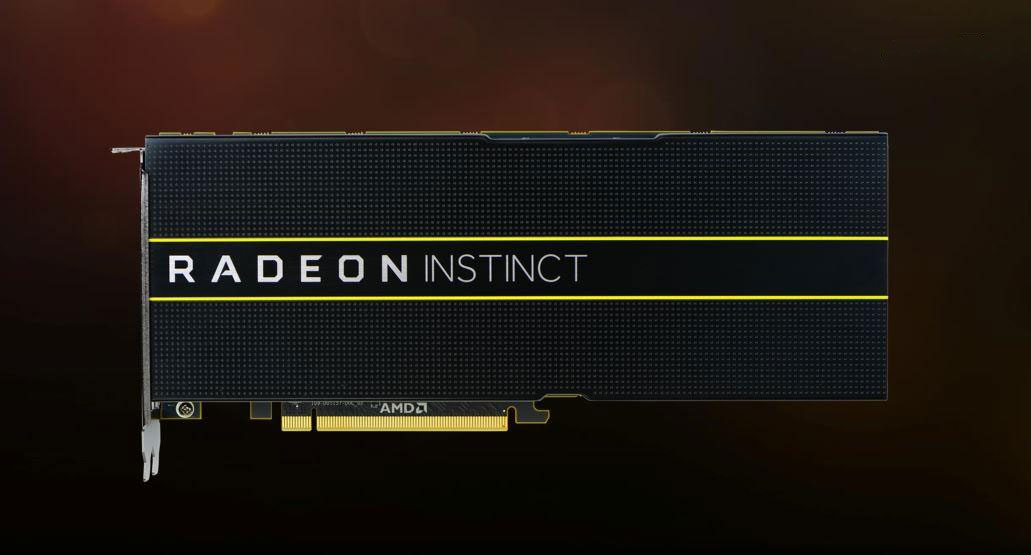AMD has a Radeon Instinct graphics card with 7nm Vega running in its lab
It will sample to customers this year.

AMD is on track to deliver graphics accelerators based on a 7-nanometer die shrink of Vega, with initial offerings aimed at tackling machine learning workloads. The company teased an image on Twitter of a Radeon Instinct graphics card featuring a 7nm Vega GPU that it says is currently "running in our labs." The post also contains a link to AMD's earnings call, in which company CEO Dr. Lisa Su confirmed plans to sample these cards later this year.
To be clear, the Radeon Instinct is not one of the best graphics cards for gaming. Introduced at the end of 2016, the Radeon Instinct line is effectively AMD's alternative to Nvidia's Tesla product family. These parts are optimized for artificial intelligence and machine learning chores, though it's the move to 7nm that is interesting.
During a question and answer session, Dr. Su said that TSMC was manufacturing its 7nm Vega GPUs rather than GlobalFoundries. These parts will be known as Vega 20, if previously leaked slides turn out to be accurate. We don't have many details to go on at the moment, though compared to Vega 10, which is what the Radeon RX Vega 56/64 cards run, Vega 20 appears to double down on HBM2. It will reportedly have four HBM2 stacks, which means twice the capacity (16 to 32 GB) and twice the bandwidth (1TB/s piped through a 4,096-bit memory bus).
Other features remain the same as Vega 10. There will be up to 64 CUs, yielding 4,096 streaming processors. Each core can do double speed FP16 calculations or half speed FP64, relative to the standard FP32. What we don't know are the clockspeeds or the power requirements. The die shrink should help in both areas, but as one of the first 7nm parts there are many unknowns.
It remains to be seen if AMD will move its Vega GPUs for gaming to 7nm as well, and that might be something the company is still mulling. As SegmentNext points out, AMD could be evaluating the performance increase that a smaller node brings to the table before making a decision whether to push a 7nm Vega GPU for gaming.
Either way, this is more good news for AMD. While not apples to apples, it's a good move to be showcasing a 7nm chip right as Intel announces a delay in volume shipments of 10nm CPUs (Cannon Lake) to 2019 because of yield issues. An even better look, though, would be to get graphics cards in the hands of gamers at MSRP.
The biggest gaming news, reviews and hardware deals
Keep up to date with the most important stories and the best deals, as picked by the PC Gamer team.
Paul has been playing PC games and raking his knuckles on computer hardware since the Commodore 64. He does not have any tattoos, but thinks it would be cool to get one that reads LOAD"*",8,1. In his off time, he rides motorcycles and wrestles alligators (only one of those is true).


